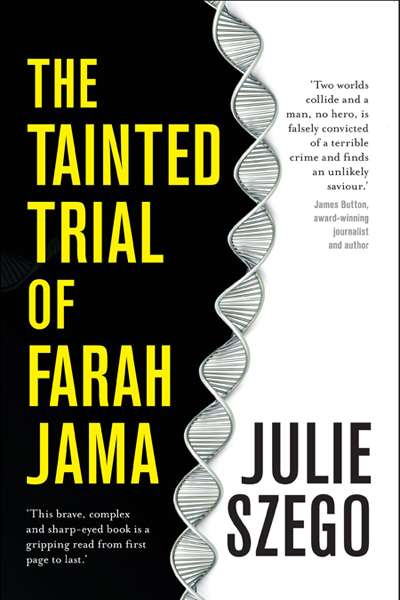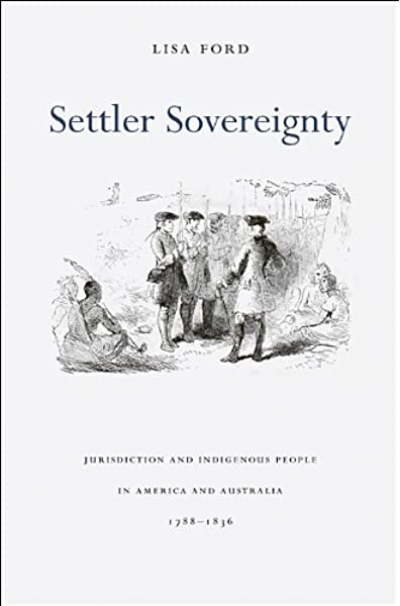Law
Sometimes the simplest of mistakes reveals far more of our preconceptions about human acts and motives, and about the complex relationships that make a human society, than we could have imagined. Such was the case with what journalist and lawyer Julie Szego dubs the ‘tainted trial’ of Farah Jama, a young Somali man who spent eighteen months in prison for a rape that almost certainly never happened.
Jama, who was accused of raping a woman found unconscious in a locked toilet cubicle in a Melbourne suburban nightclub in 2006, is the most notable Australian victim of what has been called the ‘CSI effect’: an uncritical regard for scientific techniques in the collection and analysis of evidence in criminal cases. His conviction relied solely on DNA testing, and almost nothing to corroborate it was cited at his trial. The fact that no one in the nightclub on the night in question remembered seeing a tall black man on a dance floor thronged with white faces, and that the club’s closed-circuit television tapes showed no such person entering or leaving the premises, apparently did not bother the jury or the trial judge. Nor did the fact that the woman had not even a hazy memory of the ordeal she was believed to have suffered.
... (read more)Stephen Ward Was Innocent, OK: The Case for Overturning his Conviction by Geoffrey Robertson
Who was Stephen Ward? And why does his fate matter today? The Profumo affair, with its mixture of sex, politics, aristocracy, and espionage, has become the archetypal scandal. In 1962, Jack Profumo was British Secretary of State for War (ministerial titles were more frank in those days) ...
... (read more)Henry Friendly: Greatest judge of his era by David M. Dorsen
Henry Friendly was a judge of the highest reputation – greater than Learned Hand in Justice Scalia’s opinion. His output was prodigious, his legacy unmatched: of his fifty-one clerks, twenty-one (including the present incumbent) became justices of the Supreme Court of the United States; in that Court’s decisions, only Learned Hand was cited more often than Friendly.
... (read more)Liberty: A History of Civil Liberties in Australia by James Waghorne and Stuart Macintyre
In 1988 the Hawke government put a constitutional amendment to a referendum. On the recommendation of the government’s Constitution Commission, we were invited to vote to enshrine guarantees of trial by jury, property rights, and freedom of religion. The proposition was rejected by all states. There is nothing surprising in that. We almost always do vote against constitutional amendment because the politicians of the right have always succeeded in persuading us that the original document (a free trade agreement between the federating colonies) is perfect and, in any case, any proposal for change is a left-wing plot to deprive her majesty’s loyal subjects of their common law freedoms.
... (read more)There are only seven High Court judges. Since Federation there have been just fifty-six of them (or fifty-five if we discount Justice Piddington, who never sat during his four weeks on the court). High Court judges are rare creatures, and as a rule they are publicly noticed far less than the importance of their work might suggest.
...In the days when every Australian law student studied legal history, one of the famous cases we were taught was about James Somerset. Taken from Africa, probably in his early teens, Somerset, in 1749, was by the laws of Virginia made a chattel of his master, Charles Steuart. Twenty years later, Steuart took Somerset to England, where he continued to serve as a slave for two years until, in October 1771, he fled his bondage. Steuart had Somerset seized and put on board a ship bound for Jamaica, there to be sold in the slave markets. Abolitionists rushed to the King’s Bench in London, where they obtained a writ of habeas corpus. This required the ship’s captain to bring Somerset to court with a justification for his detention. Fortunately, the presiding judge was Lord Mansfield, who declared that slavery did not exist in England. He uttered the famous order: ‘Let the black go free.’ The law of England was too pure and no slave could live in it. Habeas corpus was the remedy.
... (read more)Australia’s feisty first female High Court judge
John Bryson
From Moree to Mabo: The Mary Gaudron Story
by Pamela Burton
UWA Publishing, $49.95 pb, 511 pp, 9781742580982
H.V. Evatt, on the hustings during an election campaign, was asked by an eig ...
Settler Sovereignty: Jurisdiction and indigenous people in America and Australia, 1788–1836 by Lisa Ford
The federal government’s intervention in Aboriginal communities in the Northern Territory is, above all, an exercise of power. It illustrates for all to see that the government can interfere with the smallest details of domestic life in a blatantly discriminatory way, regardless of Australia’s international obligations and professed belief in racial equality. It declares to the world that adult Aborigines can be treated like children. Both the present and previous government would argue, in a time-honoured way, that it is for the communities’ own good.
... (read more)Roma the First: A biography of Dame Roma Mitchell by Susan Magarey and Kerry Round
Roma Mitchell came first in nearly everything. Not only at school and university, but in becoming Australia’s first female OC, Supreme Court judge, Boyer Lecturer, university chancellor and state governor. But she had no inside track to success. Her father was killed in World War I, her mother survived on his pension and the generosity of friends, and Roma and her older sister were taught by the Sisters of Mercy for nothing.
... (read more)‘I am really only an oppositionist, distrustful of power wherever I see it,’ wrote Jack Barry (1903–69) in 1951; and perhaps his oppositional instincts held him back from the heights of power to which he sometimes aspired. Instead, this biography argues, his impact was that of ‘a public intellectual before the term was invented’.
... (read more)









